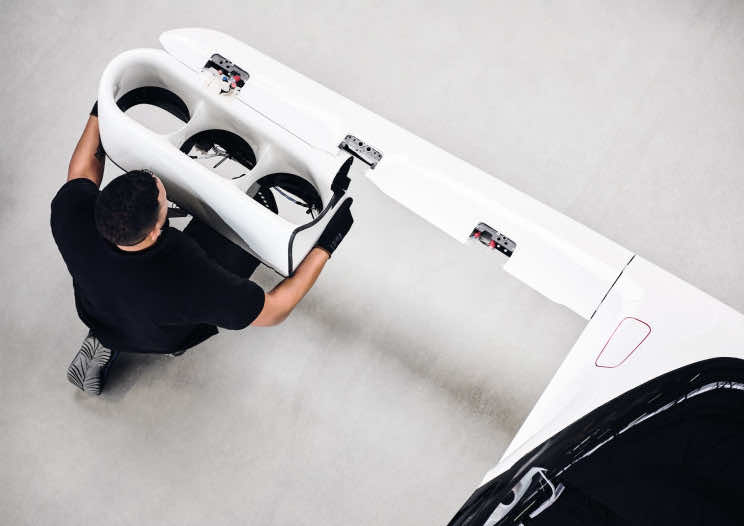Its been a while now that we have heard about the flying commute and taxi services in the cities. With modern technology and innovative ideas, the question “if’ the flying taxis will take to the air is replaced with “when.”
Many startups and known companies in the industry are building their flying machines for city commute; Lilium is no behind. The start-up has introduced its new 7-seater jet that is compact and sleek in its design and seems like a promising fit for the future of within-city air travel.
The German company revealed its latest build and said that its initial testing results paid well for the hard work. Lilium claimed the aircraft has a range of 150-mile (240 km) and went to speeds of 175 mph (280 km/h). The new sleek designed aircraft is good to carry 7 passengers for short air commutes.
The flying taxi by Lilium flies by using a series of electric jet engines placed in its wing flaps. The company claimed that its new design results in noise reduction and is an efficient aircraft in aerodynamics.

Lilium’s new built is an electric-powered flying car and would cater to a handful of passengers. Such modern air-taxis are still in their prototype development and initial testing phases, while their commercial roll-out is much awaited.
The company’s earlier flying-taxi prototype was a five-seater, also powered by electric motors. Their new prototype seats seven passengers and comes packed with more range and capabilities to fly at higher altitudes. Lilium will launch passenger operations in 2025 if stayed on the track of innovation that they are on.

The project is backed by Spac, which is a blank-check corporation. It collects funds for projects and ideas that seem promising but lack enough resources to progress with the built works. Lilium is soon to receive approximately $830 million from the deal initially. Spac has funded some other projects relating to this one; however, the deal with Lilium is the latest involving an electric vertical take-off and landing vehicle’s production.


